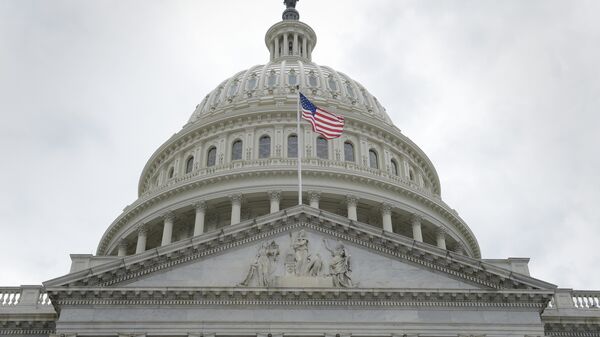MOSCOW (Sputnik) — The administration of US President Donald Trump will unveil its first national security strategy in the next few weeks, which, in particular, will be based on the need to confront what Washington regards as major challenges, The Wall Street Journal reported Monday, citing White House officials.
Main Threats Defined by the US
Speaking at the Reagan National Defense Forum this weekend, where US congressional and military leaders gathered, US National Security Adviser Herbert McMaster broadly outlined the new security strategy, which includes four pillars — protection of the US people and homeland, advancing US prosperity, "preserving peace through strength" and fight against terrorism.
READ MORE: No Nukes Co-Founder: 'US Needs to Prove It's Militarily Superior to Rest'
The strategy encompasses North Korea's nuclear threat, international terrorism, Iran's alleged meddling and China's growing influence in Asia. The document will also reportedly focus on Russia's alleged propaganda efforts in the West. However, the document will reportedly set out the administration’s terms for expanding global partnerships.
READ MORE: US Ambassador to Russia Sets Restoring Moscow-Washington Trust as His Main Goal
The new strategy has been in development since US National Security Adviser Herbert McMaster joined the White House in March and last week it was discussed by Trump's top national security advisers, the publication added.
The US Withdrawal From the UN Global Compact on Migration
Meanwhile, Washington has already outlined some political changes by terminating its participation in the UN process to develop a Global Compact on Migration (GCM), according to a statement on US Department of State official website.
"While we will continue to engage on a number of fronts at the United Nations, in this case, we simply cannot in good faith support a process that could undermine the sovereign right of the United States to enforce our immigration laws and secure our borders.
The United States supports international cooperation on migration issues, but it is the primary responsibility of sovereign states to help ensure that migration is safe, orderly, and legal," the statement reads.
US ambassador to the UN Nikki Haley has commented on the move, as cited by the CNN, by saying that the global approach is not compatible with the nation's sovereignty, though, adding that the US was proud of its leadership on migration and refugee issues.
"Our decisions on immigration policies must always be made by Americans and Americans alone," she said. "We will decide how best to control our borders and who will be allowed to enter our country."
Russia's Alleged Threat
The relations between the two countries has been gradually deteriorating since 2014 amid the crisis with Ukraine and Crimea's reunification with Russia as a result of a referendum, which triggered the introduction of sanctions against Moscow by Washington and the EU.
In addition, the United States has repeatedly accused Russia of meddling in the 2016 US presidential election, a claim which has been refuted by Russia on multiple occasions, saying that engaging in hostile measures contradict the idea of the development of good bilateral relations.


